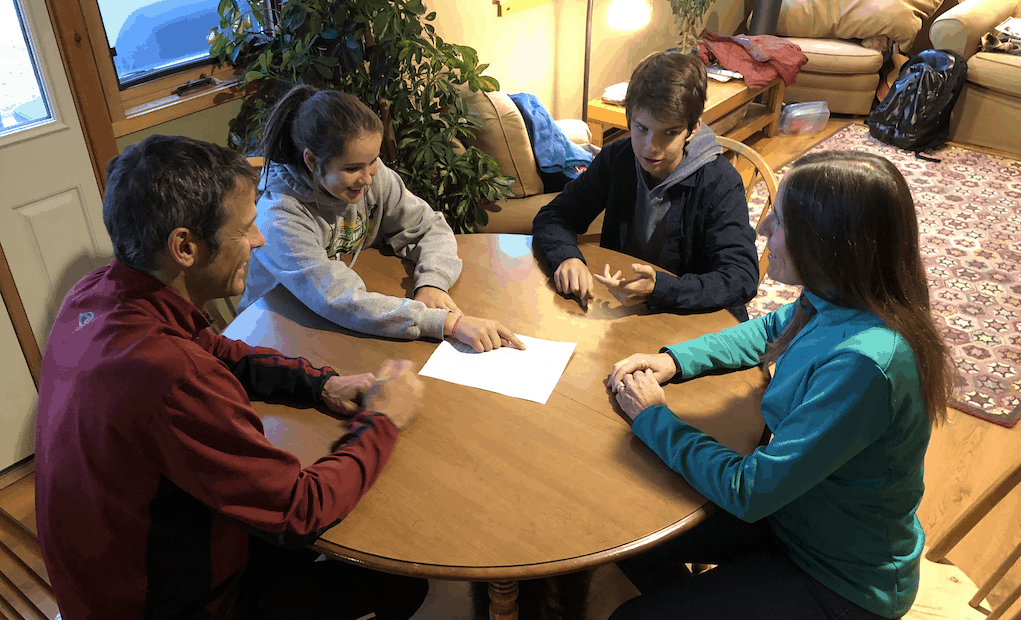Podcast: Rachel Wigglesworth on Learning at Home

With schools in a majority of states closed, more than 36 million of about 50 million American students are learning remotely. The pandemic is posing a huge challenge for students and parents. Some parents are trying to figure out how to stay at home with the kids. Others are trying to figure out how to work at home with the kids there. Some are scrambling for child care. Stress and uncertainty are high for everyone.
To get some advice on this new situation we spoke Rachel Wigglesworth, founder of Growing Great Families, a parent coaching and consulting organization. She holds a Master’s degree in Family Education with a Teaching Certificate in Parent Education. She’s been working with mothers and families for 15 years.
Rachel is also a scientist. Before working as a research biologist, she earned a Master’s in zoology and physiology at the University of Wyoming where she met her husband Nate McClennen. He’s the Vice President for Education and Innovation at Teton Science Schools and the co-author of The Power of Place: Authentic Learning Through Place-Based Education (and featured on this recent podcast).
In this podcast, Rachel and Nate provide some great advice to parents. Highlights of our conversation include:
- Start with a family meeting: discuss everyone’s needs and opportunities– what does everyone want to get out of this time? Develop some new agreements. In fact, starting each day with a morning meeting each day can be a great way to address a dynamic situation.
- Create some new routines: you may need to update time to get up, dress code (no, kids don’t need to get out of their pajamas as long as they can be productive), and schedule for the day–being out of routine can be hard for some kids. But listen to children and try to take their interest into account.
- Create some boundaries: if you need to work at home, set some daily rules and routines for scheduled meetings and work blocks. Don’t sweat a “meeting pirate” (a kid showing up in your Zoom conference.)
- Be realistic about some extra screen time: it’s likely that students (especially older ones) will be doing some school work online and trying to connect with their friends.
- Don’t stress: Pick a few resources and work on those. Nate likes Greater Good in Education for social and emotional learning.
- On academic work: make time for reading and math every day.
- Start a journal: ask children to write (or draw) every day, reflect on the day as a great start.
- Go outdoors every day: if safe and possible, go outside, go for a walk, ask children what they see.
- Start a passion project: encourage learners to pick up that musical instrument that’s been in the closet, do some painting, produce a podcast, write a blog, plant a garden (even plant box on deck), build something (you can even take something apart and put it together).
- Acknowledge what is going well: as author Vicki Hoefle says, identify and anchor in experiences–notice and comment on the progress your kids are making, pay less attention to the goofing off or less productive times.
- Encourage responsibility: allow kids to help set guidelines, build solutions and see what they can accomplish on their own (read How to Raise an Adult for more).
- Be understanding; start with empathy, try to uncover what’s going on that behind the meltdown. Help them feel felt as Dan Siegel would say. Realize that it will be hard for everyone.
- Focus on the relationship: Try to enjoy each other’s company, slow down and spend quality time. Connect deeply with each child at least once a day. To the extent you can, spend time together in crafts, games, and time outside.
For more, see:
- Facebook Live with Rachel and Vicki Hoefle of Duct Tape Parenting
- Episode 247: Emily Liebtag and Nate McClennen on the Power of Place
- Geographic Literacy is a Foundation Element of Global Competency
Stay in-the-know with innovations in learning by signing up for the weekly Smart Update.







Mike McGalliard
Great stuff, Tom, Rachel, Caroline and team. I appreciate you taking the lead on helping us parents figure out how to get through this weird time. I especially like the cooperative approach to learning that families can embrace. And for those of us with limited time and heavy workloads, giving children space and tools to unleash their creativity is a great way to go (think "cardboard challenge" via Imagination). Thanks.